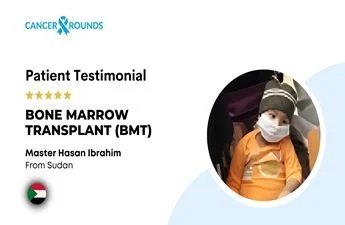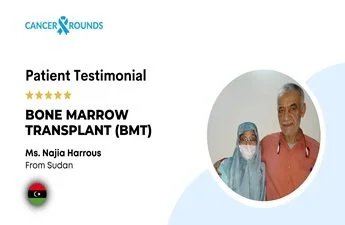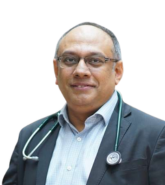Bone Marrow Transplants in India
World-Class Expertise – Affordable Excellence – Lifesaving Outcomes
India today is at the forefront of bone marrow transplantation (BMT), blending cutting-edge medical innovation with compassionate patient care. Globally renowned institutions like AIIMS Delhi, Tata Memorial Mumbai, Apollo Chennai, Medanta Gurugram, and CMC Vellore have redefined what was once an experimental therapy into a mainstream lifesaving treatment.
Patients from across Asia, Africa, the Middle East, Europe, and North America travel to India for transplants because of the world-class infrastructure, internationally trained doctors, advanced stem cell laboratories, molecular typing capabilities, robust infection-control systems, and significantly lower costs compared to the West.
Bone Marrow Transplantation in India is not just a medical procedure—it is a second chance at life, restoring health and hope for patients battling complex hematological malignancies and genetic blood disorders.
What is Bone Marrow Transplant?
A Bone Marrow Transplant (BMT), also known as a Hematopoietic Stem Cell Transplant (HSCT), involves replacing diseased or damaged bone marrow with healthy stem cells. These stem cells regenerate normal blood cells, revitalize the immune system, and restore the body’s ability to fight infections and disease.
Causes & Indications for Bone Marrow Transplant
Conditions That May Require a BMT:
- Hematologic Malignancies:
- Leukemia (ALL, AML, CML)
- Lymphoma (Hodgkin’s, Non-Hodgkin’s)
- Multiple Myeloma
- Bone Marrow Failure Syndromes:
- Aplastic Anemia
- Myelodysplastic Syndromes (MDS)
- Genetic & Inherited Disorders:
- Thalassemia Major
- Sickle Cell Anemia
- Primary Immunodeficiencies
- Storage/Metabolic Disorders
Doctors For Bone Marrow Transplants
Need More Recommendations ?
Symptoms Suggestive of BMT-Eligible Conditions
- Chronic fatigue and pallor
- Recurrent or unusual infections
- Excessive bleeding, frequent bruising
- Enlarged lymph nodes or spleen
- Persistent bone or joint pain
- Unexplained fever and weight loss
Contraindications for Bone Marrow Transplant
- Severe multi-organ dysfunction (heart, lungs, liver, kidneys)
- Uncontrolled infections at the time of transplant
- Advanced age with frailty and poor performance status
- Psychosocial issues (poor compliance, lack of caregiver support)
Who Performs Bone Marrow Transplants?
BMT is delivered by a multidisciplinary team, including:
- Hematologists & Hemato-oncologists (primary transplant doctors)
- Oncologists & Radiation Oncologists (for conditioning therapy)
- Immunologists (for graft matching & immune reconstitution)
- Transplant Surgeons & Anesthesiologists (for catheter placement & peri-procedure care)
- Infectious Disease Experts (to manage post-transplant infections)
- Psychologists, Nutritionists & Physiotherapists (for holistic care)
A Bone Marrow Transplant (BMT) is not the work of a single doctor but a highly coordinated effort led by a multidisciplinary team of specialists. At India’s top BMT centers, patients are cared for by hematologists and hemato-oncologists, who serve as the primary transplant physicians. They are supported by oncologists and radiation oncologists, who design and deliver the conditioning therapy that prepares the body for transplantation. Immunologists play a crucial role in HLA matching, graft selection, and immune system recovery, while transplant surgeons and anesthesiologists ensure safe catheter placement and peri-procedural management. Post-transplant, infectious disease experts safeguard patients against opportunistic infections, which are common during immune suppression. To complete the circle of care, psychologists, nutritionists, and physiotherapists provide holistic support—addressing mental health, dietary needs, and physical rehabilitation.
This integrated team-based approach ensures that bone marrow transplantation in India is not only safe and precise but also comprehensive and patient-centric, matching global standards while remaining far more affordable.
Types of Bone Marrow Transplant in India
| Type of BMT | Description | Best Suited For | Availability in India |
| Autologous | Patient’s own stem cells collected, stored, and reinfused after high-dose chemotherapy | Lymphoma, Multiple Myeloma | Widely available in all major metros |
| Allogeneic | Stem cells from HLA-matched sibling/unrelated donor | Leukemia, Aplastic Anemia | AIIMS, CMC, Tata Memorial, Medanta |
| Haploidentical | Half-matched donor (parent/sibling) used with advanced GVHD prophylaxis | Patients without full donor match | Medanta, Apollo Chennai, Manipal Bangalore |
| Cord Blood Transplant | Umbilical cord stem cells used (mostly pediatric cases) | Pediatric cancers, inherited disorders | CMC Vellore, Apollo Chennai |
| Novel Therapies | CAR-T cell therapy, Gene Therapy, Reduced-Intensity Conditioning | Resistant leukemias, fragile patients | AIIMS Delhi, Tata Mumbai (trial phase) |
Innovative Therapies & Clinical Trials in India
- Haploidentical BMT with Post-Transplant Cyclophosphamide → expanding donor options
- CAR-T Cell Therapy → revolutionizing relapsed leukemias/lymphomas (trial-based at AIIMS, Tata)
- Reduced-Intensity Conditioning (RIC) → making transplants safer for elderly/frail patients
- Gene Therapy for Thalassemia & Sickle Cell → in early adoption stages
- Next-Generation Sequencing (NGS) → precision donor-recipient matching for better outcomes
Role of Cancer Rounds in India
Cancer Rounds form the cornerstone of patient-centric transplant care in India.
- For Domestic Patients:
- Multidisciplinary experts analyze every case.
- Consensus on diagnosis, donor choice, conditioning regimen.
- Supportive care integration (nutrition, rehab, psychology).
- For International Patients:
- Dedicated coordinators for medical visa, logistics & translators.
- Access to Indian & global donor registries.
- Discharge plans linked with home-country doctors.
- Eligibility evaluation for innovative clinical trials.
This ensures personalized, evidence-based, and internationally benchmarked treatment pathways.
5 easy Steps to Get Treated in India

Share Case Details

Get Expert Opinion and Hospital Quotes

Get Visa Invitation & Hotel Recommendations

Get Received At Airport and Start Your Treatment

Travel Back and Get Followups Through Us
Survival Rates, DFS & RFS in India
| Condition | 5-Year OS (Overall Survival) | DFS (Disease-Free Survival) | RFS (Relapse-Free Survival) | Global Average |
| Autologous BMT (Myeloma/Lymphoma) | 80–90% | 75–85% | 70–80% | ~85% |
| Allogeneic BMT (Leukemia) | 60–70% | 55–65% | 50–60% | ~65% |
| Thalassemia Major (children) | 80–85% | 75–82% | 70–80% | ~80% |
| Haploidentical BMT | 55–70% | 50–65% | 45–60% | ~60% |
Key factors for success: age, disease stage, donor match, and care in NABH/JCI accredited hospitals.
Cost of Bone Marrow Transplant in India
- Autologous BMT ($18,000 – $25,000): Uses the patient’s own stem cells, most effective for multiple myeloma and lymphoma.
- Allogeneic BMT ($28,000 – $45,000): Involves matched donor stem cells, ideal for leukemia, aplastic anemia, and genetic disorders.
- Haploidentical BMT ($32,000 – $50,000): Uses a partially matched family donor, a lifesaving option when no full donor match exists.
- Cord Blood BMT ($35,000 – $55,000): Employs umbilical cord stem cells, especially beneficial in pediatric cancers and genetic diseases.
Cost Comparison (India vs USA/Europe)
| Type | India | USA/Europe |
| Autologous | $18k–25k | $90k–120k |
| Allogeneic | $28k–45k | $120k–200k |
| Haploidentical | $32k–50k | $150k–220k |
India offers 70–80% savings with comparable outcomes.
Cost Comparison of Bone Marrow Transplants: India vs. USA/Europe
Bone Marrow Transplant (BMT) costs vary widely across the globe, depending on the type of transplant, hospital infrastructure, donor availability, and post-transplant care. India offers world-class expertise at nearly one-third the cost compared to Western countries—without compromising survival outcomes.
Autologous Bone Marrow Transplant (BMT)
- India: $18,000 – $25,000
- USA/Europe: $90,000 – $120,000
- What it is: In an autologous transplant, the patient’s own healthy stem cells are harvested, stored, and re-infused after high-dose chemotherapy or radiation.
- Indications:
- Multiple Myeloma
- Hodgkin’s Lymphoma
- Non-Hodgkin’s Lymphoma
- Why patients choose India: Autologous BMT in India is widely available in top hospitals (Apollo, Tata Memorial, CMC Vellore) with success rates up to 85–90%, at 70–80% lower cost compared to the West.
Allogeneic Bone Marrow Transplant (BMT)
- India: $28,000 – $45,000
- USA/Europe: $120,000 – $200,000
- What it is: In an allogeneic transplant, stem cells are taken from a matched donor (sibling or unrelated donor). It requires advanced donor matching, infection control, and long-term follow-up.
- Indications:
- Acute Leukemia (AML, ALL, CML)
- Aplastic Anemia
- Myelodysplastic Syndromes (MDS)
- Genetic & metabolic disorders
- Why patients choose India: With access to international donor registries and NGS-based HLA typing, Indian hospitals offer precision donor matching and comprehensive post-transplant care at a fraction of Western costs.
Haploidentical Bone Marrow Transplant (BMT)
- India: $32,000 – $50,000
- USA/Europe: $150,000 – $220,000
- What it is: Haploidentical transplantation uses a partially matched family donor (parent, sibling, or child) when a full donor match is unavailable. It requires advanced protocols to prevent Graft-Versus-Host Disease (GVHD).
- Indications:
- Patients without a fully matched donor
- Acute & chronic leukemias
- High-risk lymphoma and bone marrow failure syndromes
- Why patients choose India: India is a regional leader in haploidentical BMT, with hospitals like Medanta, Apollo, and AIIMS using Post-Transplant Cyclophosphamide (PTCy) protocols to reduce complications. Costs are 70–75% lower than in the West, making it accessible to families globally.
Key Takeaway:
- In the USA/Europe, BMT costs can reach $200,000+, making it unaffordable for many families.
- In India, the same procedures are offered at 70–80% lower cost, with outcomes that are comparable to international benchmarks.
- Patients from Asia, Africa, the Middle East, and even developed countries like the UK and USA increasingly choose India for affordable, advanced, and compassionate transplant care.
City-Wise Bone Marrow Transplant (BMT) Programs in India
India’s leading cities have emerged as hubs of excellence in Bone Marrow Transplantation (BMT), offering cutting-edge therapies, internationally accredited units, and multidisciplinary expertise. Patients across the globe choose these centers for their advanced infrastructure, compassionate care, and cost-effectiveness.
Delhi NCR – Capital of Medical Excellence
- AIIMS Delhi – India’s premier government institute, known for its world-class hematology and BMT department offering affordable yet advanced care.
- Medanta – The Medicity, Gurugram – A global pioneer in haploidentical transplants, with strong outcomes in complex leukemia and lymphoma cases.
- Apollo Hospital, Delhi – Renowned for comprehensive transplant care with a dedicated international desk catering to patients from across Asia, Africa, and the Middle East.
Mumbai – Western India’s Oncology Powerhouse
- Tata Memorial Hospital – Asia’s largest cancer care institute, with a specialized pediatric BMT program and access to global clinical trials.
- Jaslok Hospital – Trusted for autologous and allogeneic transplants, with high survival outcomes in myeloma and lymphoma patients.
- Kokilaben Dhirubhai Ambani Hospital – Offers precision-based BMT programs with advanced GVHD management protocols and stem cell labs.
Chennai – South India’s Transplant Leader
- Apollo Hospital, Chennai – A pioneer in haploidentical and matched sibling transplants, with decades of expertise and an international reputation.
- MIOT International – Specializes in pediatric BMT with advanced infection-control systems and a holistic approach to patient recovery.
Bangalore – Affordable & Advanced BMT Destination
- Manipal Hospital – Offers autologous and allogeneic BMT programs, with success in treating multiple myeloma, leukemia, and aplastic anemia.
- Narayana Health City – Known for its affordable transplant packages, catering to domestic and international patients with excellent outcomes.
Vellore – Global Hub for Pediatric & Genetic Disorders
- Christian Medical College (CMC Vellore) – Internationally acclaimed for its expertise in thalassemia, aplastic anemia, and genetic disorder transplants. Families from Asia, Africa, and the Middle East travel here for life-saving pediatric BMT.
Hyderabad – Fast-Emerging Transplant Hub
- Continental Hospitals – Equipped with state-of-the-art transplant ICUs, specializing in both adult and pediatric BMT programs.
- KIMS Hospital – Known for its comprehensive hematology and oncology care, offering cost-effective BMT solutions with global-standard outcomes.
Why this matters: With city-specific BMT programs, India offers personalized treatment pathways, ensuring patients can access the right hospital, right expertise, and right therapy—whether it’s autologous, allogeneic, haploidentical, or cord blood transplantation.
Who Performs Bone Marrow Transplants in India?
BMT is delivered by a multidisciplinary team including:
- Hematologists & Hemato-oncologists (lead transplant doctors)
- Oncologists & Radiation Oncologists (conditioning therapy)
- Immunologists (HLA matching, graft monitoring)
- Transplant Surgeons & Anesthesiologists
- Infectious Disease Experts (post-transplant infections)
- Psychologists, Nutritionists & Physiotherapists
This team-based approach ensures precision, safety, and holistic recovery—matching international standards at a fraction of global costs.
Role of Cancer Rounds in India
Cancer Rounds (Tumor Boards) are central to India’s transplant care:
For Domestic Patients
- Case review by multidisciplinary experts
- Consensus on diagnosis, donor choice, conditioning
- Integration of supportive care (nutrition, rehab, psychology)
For International Patients
- Visa, logistics & interpreter support
- Access to Indian & global donor registries
- Discharge plans linked to home-country doctors
- Clinical trial eligibility evaluation
This ensures personalized, evidence-based, and globally benchmarked care.
Survival Rates, DFS & RFS in India
| Condition | 5-Year OS | DFS | RFS | Global Average |
| Autologous BMT (Myeloma/Lymphoma) | 80–90% | 75–85% | 70–80% | ~85% |
| Allogeneic BMT (Leukemia) | 60–70% | 55–65% | 50–60% | ~65% |
| Thalassemia Major (children) | 80–85% | 75–82% | 70–80% | ~80% |
| Haploidentical BMT | 55–70% | 50–65% | 45–60% | ~60% |
Best hospital for bone marrow transplant in india
- AIIMS Delhi – Largest public sector BMT program in India
- CMC Vellore – Pioneer in pediatric BMT & thalassemia cure
- Tata Memorial Hospital, Mumbai – Premier oncology & transplant center
- Apollo Hospitals, Chennai – Extensive experience in haploidentical and international BMTs
- Medanta – The Medicity, Gurugram – State-of-the-art transplant facilities with global patient influx
- Narayana Health City, Bangalore – Affordable and accessible BMT care
- Kokilaben Hospital, Mumbai – Advanced transplant and CAR-T therapy trials
Top Bone Marrow Transplant Specialist in India
- Dr. Gaurav Kharya – Medanta, Gurugram (Global expert in haploidentical & pediatric BMT)
- Dr. Revathi Raj – Apollo Hospitals, Chennai (Renowned pediatric hemato-oncologist)
- Dr. Vikas Dua – Fortis Memorial Research Institute, Gurugram (Specialist in thalassemia & aplastic anemia)
- Dr. Mammen Chandy – CMC Vellore (Legendary pioneer of BMT in India)
- Dr. Sharat Damodar – Narayana Health, Bangalore (Expert in autologous and allogeneic transplants)
- Dr. Rahul Bhargava – FMRI Gurugram (Among India’s most experienced BMT doctors)
- Dr. Esha Kaul – Max Hospital, Delhi (Specialist in adult leukemia & myeloma BMT)
Why Choose India for Bone Marrow Transplant?
- World-class hospitals with global accreditations
- Internationally trained specialists with proven expertise
- 70–80% cost savings compared to USA/Europe
- Cutting-edge innovations like CAR-T therapy & gene therapy trials
- Seamless international care via Cancer Rounds & transplant coordinators
Success of Bone Marrow Transplants in India
India has established itself as a global hub for successful bone marrow transplants (BMTs), with survival rates now comparable to international benchmarks. The success is attributed to advancements in haploidentical transplantation, pediatric BMT, CAR-T therapies, and infection-control protocols.
- Autologous BMT (Myeloma/Lymphoma): Highest success rates, with ~85% 5-year survival, owing to better control of disease relapse and low transplant-related complications.
- Allogeneic BMT (Leukemia): Achieves ~65% survival, depending on donor match and disease stage at transplant.
- Thalassemia Major (children): India is a leader, with ~82% success, particularly at centers like CMC Vellore and Apollo Chennai.
- Haploidentical BMT: Once considered high-risk, now shows ~60% survival, offering a lifeline for patients without matched donors
The chart above illustrates disease-wise 5-year survival rates in India, showcasing how BMT success has expanded across different conditions.
FAQs on Bone Marrow Transplant in India
Q.1 Why is India considered a global hub for Bone Marrow Transplantation (BMT)?
India offers a unique blend of advanced oncology infrastructure, internationally trained hematologists, and significantly reduced costs compared to Western countries. Hospitals like AIIMS Delhi, Tata Memorial Mumbai, CMC Vellore, Apollo Chennai, and Medanta Gurugram follow global transplant protocols, ensuring outcomes at par with the best in the world.
Q.2 What are the different types of Bone Marrow Transplants performed in India?
India provides Autologous, Allogeneic, Haploidentical, and Cord Blood Transplants. Each modality is tailored to the patient’s diagnosis—ranging from multiple myeloma and lymphoma (autologous) to aplastic anemia, leukemia, and thalassemia (allogeneic and haploidentical).
Q.3 Which diseases are typically treated with BMT in India?
BMT in India is used for hematological malignancies like leukemia, lymphoma, multiple myeloma, as well as non-malignant disorders including aplastic anemia, thalassemia major, sickle cell disease, and immunodeficiencies. Select hospitals also manage rare metabolic and genetic disorders with transplant protocols.
Q.4 What are the common symptoms and conditions that necessitate a Bone Marrow Transplant?
Patients may present with persistent anemia, frequent infections, unexplained bleeding/bruising, severe fatigue, or genetic blood disorders. When standard therapies fail, BMT becomes the definitive treatment.
Q.5 Who are the leading doctors and specialists for Bone Marrow Transplant in India?
India boasts globally acclaimed hematologists and transplant physicians, including Dr. Gaurav Kharya (Apollo Delhi), Dr. Sharat Damodar (Narayana Bangalore), Dr. Vikas Dua (Fortis Gurgaon), and Dr. Revathi Raj (Apollo Chennai), along with distinguished teams at AIIMS and Tata Memorial.
Q.6 What is the average cost of Bone Marrow Transplant in India?
- Autologous BMT: $18,000–$25,000
- Allogeneic BMT: $28,000–$45,000
- Haploidentical BMT: $32,000–$50,000
- Cord Blood BMT: $35,000–$55,000
Compared to the US/Europe, where costs can exceed $120,000–$220,000, India offers 70–80% savings with comparable outcomes.
Q.7 What are the survival rates, DFS (Disease-Free Survival), and RFS (Relapse-Free Survival) in India?
- Autologous BMT: 80–90% 5-year DFS, 70–80% RFS.
- Allogeneic BMT: 60–70% 5-year DFS, 55–65% RFS.
- Thalassemia Major (pediatric): 80–85% DFS.
These rates are comparable to global benchmarks, especially in AIIMS, CMC Vellore, and Tata Memorial.
Q.8 How long does hospitalization and recovery take after BMT?
Patients usually stay 4–6 weeks in hospital, followed by 3–6 months of close monitoring. Recovery includes regular blood tests, infection prophylaxis, nutritional therapy, and physiotherapy.
Q.9 Are innovative therapies like CAR-T cell therapy and gene therapy available in India?
Yes. Select centers like AIIMS Delhi, Tata Memorial Mumbai, and Apollo Hospitals are offering CAR-T therapy and gene-editing protocols in clinical trial settings, particularly for resistant leukemia and lymphoma.
Q.10 How are donors matched for Allogeneic BMT in India?
Donor matching is done via HLA typing using Next-Generation Sequencing (NGS). India is connected with international donor registries, enhancing access for patients without a local match. Haploidentical (half-match) transplants are also increasingly successful.
Q.11 What are the risks and contraindications of Bone Marrow Transplant?
Risks include graft-versus-host disease (GVHD), infections, organ toxicity, and relapse. Contraindications may include poor performance status, advanced organ failure, uncontrolled infections, or severe comorbidities.
Q.12 What role do Cancer Rounds play in BMT in India?
Cancer Rounds expertly coordinates the patient journey by arranging multidisciplinary meetings, where hematologists, oncologists, immunologists, and pathologists collaboratively decide on conditioning regimens, donor selection, and supportive care. This structured approach ensures greater safety, treatment precision, and improved survival outcomes.
Q. 13 Do Indian hospitals accept international patients for BMT?
Yes. Leading centers have dedicated international patient desks offering services like visa assistance, language interpretation, accommodation arrangements, and cost package clarity.
Q.14 How does India compare with Western countries in terms of quality and outcomes?
India matches global success rates in BMT while providing 70–80% cost savings. Hospitals are accredited by NABH, JCI, and ISO, ensuring international standards.
Q.15 What post-transplant care is provided in India?
Patients receive immunosuppressive therapy, anti-infective prophylaxis, psychological counseling, and nutrition guidance. Long-term follow-up is essential for monitoring GVHD, relapse, and organ function.
Q.16 Are pediatric BMT programs available in India?
Yes. CMC Vellore, Tata Memorial, Apollo Chennai, and AIIMS Delhi are pioneers in pediatric bone marrow transplantation, especially for thalassemia, sickle cell disease, and immunodeficiencies.
Q. 17 How safe are haploidentical bone marrow transplants in India?
With post-transplant cyclophosphamide protocols, haploidentical transplants in India achieve 55–70% survival, making them a safe option for patients lacking a fully matched donor.
Q.18 What are the chances of relapse after BMT in India?
Relapse rates depend on disease type, stage at transplant, and donor compatibility. For autologous BMTs, relapse is lower, while allogeneic BMTs may have 10–20% relapse risk within 5 years.
Q.19 Are clinical trials and experimental therapies accessible in India?
Yes. Many Indian hospitals collaborate with global oncology networks to provide patients access to CAR-T trials, novel immunotherapies, gene therapy, and precision-medicine-based BMT approaches.
Q.20 How do I begin my BMT journey in India with Cancer Rounds?
Patients can start with a virtual consultation, share their reports for evaluation, and receive personalized cost estimates and hospital recommendations. Cancer Rounds coordinates the entire journey—from donor matching and hospital admission to post-transplant care and follow-up abroad.
India has transformed into a global epicenter for bone marrow transplantation, combining medical innovation, internationally trained experts, city-wise specialized centers, survival outcomes on par with the West, and affordable care packages. For patients battling life-threatening blood disorders, India offers not just treatment—but renewed health, resilience, and hope.
Choosing the right hospital and treatment plan for a Bone Marrow Transplant in India can feel overwhelming. At Cancer Rounds, we simplify your journey by:
- Guiding you to the best BMT specialists and hospitals (AIIMS, Tata Memorial, Apollo, Medanta, CMC Vellore, and more).
- Helping with donor matching, international registries, and second opinions.
- Assisting in visa, travel, and accommodation for international patients.
- Providing cost transparency and treatment planning.
- Coordinating pre- and post-transplant care with your doctors at home
You May Be Also Interested In
All Treatment Pages
Related Patient Stories

Our son had relapsed leukemia. Thanks to Cancer Rounds & Fortis, he got the right treatment and a second chance at life. Forever thankful.

India gave me hope and healing. With Cancer Rounds by my side, I overcame CLL through a bone marrow transplant. Forever grateful for this journey.
Our Impact
CancerRounds is making quality cancer care accessible to more people every day.




Why Choose India for Cancer Treatment?

World-Class Care
Skilled oncologists provide top-tier medical services

Affordable Treatment
Costs are significantly lower than in Western countries.

Comprehensive Packages
Hospitals offer all-inclusive plans covering surgery, stay, and aftercare.

Easy Accessibility
Well-connected airports and international flight routes.

Proven Success
High patient satisfaction and positive treatment outcomes
Thank You!
Your form has been submitted successfully.





 Chat on WhatsApp
Chat on WhatsApp